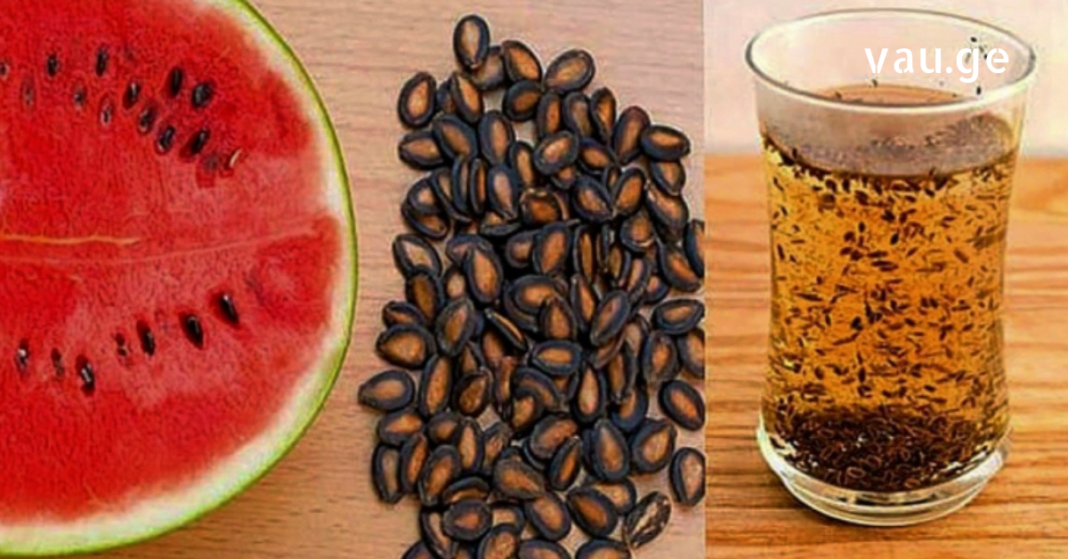Summer has arrived, and many of us eagerly anticipate the watermelon season. After all, what could be better than biting into a ripe, chilled watermelon on a hot summer day? Most people enjoy the juicy red flesh of watermelon and often remove the seeds before eating. However, what many don’t realize is that the seeds can be just as beneficial as the flesh—if not more.
Watermelon isn’t just a delicious and hydrating fruit; it’s also incredibly good for your health. It’s low in calories and packed with powerful antioxidants that have numerous positive effects on the human body.
Watermelon flesh is composed of approximately 80–95% water, making it an excellent natural hydrator and a strong diuretic. This means it can help cleanse the body of toxins and reduce fluid retention. It’s particularly effective in combating mild forms of intoxication and promoting overall detoxification.
Nutritionally, watermelon is rich in vitamins A, C, B-complex, and PP (niacin). It also contains fructose, essential oils, malic acid, and other beneficial organic compounds. Interestingly, watermelon seeds are made up of about 35% healthy fats, making them a surprisingly nutrient-dense component of the fruit.
In simpler terms, our body is constantly undergoing chemical processes that help maintain balance and function. During these processes, free radicals are produced. These are unstable molecules that can damage healthy cells and negatively impact the heart, immune system, and nervous system. This is where antioxidants come into play—they neutralize free radicals and protect the body at a cellular level.
According to cardiologists, watermelon is a fantastic source of lycopene, a powerful antioxidant responsible for the fruit’s red color. Lycopene has been linked to a reduced risk of cardiovascular diseases and certain types of cancer, making watermelon an excellent heart-friendly food.
Another important compound found in watermelon is the amino acid citrulline, which has been shown to improve blood circulation and reduce muscle soreness. In addition, watermelon is a good source of vitamins C and A, as well as important minerals like potassium and magnesium—all of which are essential for heart and muscle function.
Watermelon seeds are also valuable. They contain amino acids such as lysine and tryptophan, both of which are crucial for maintaining a healthy cardiovascular system. Additionally, they contain arginine, which helps regulate blood pressure and supports proper blood vessel function.
So, how can you actually use watermelon seeds for health benefits? Here’s a simple recipe for watermelon seed tea:
- Crush or grind 4 tablespoons of watermelon seeds.
- Boil them in 2 liters of water for about 15 minutes.
- Drink this tea over the course of two days.
- Take a one-day break, and then repeat the cycle for two weeks.
Watermelon rind, especially the white part just beneath the skin, also has therapeutic properties. Here’s how you can prepare an infusion using the rind:
- Wash and dry the rind thoroughly, then chop it into small pieces.
- Take 2 tablespoons of the dried rind and pour 0.5 liters of boiling water over it.
- Let it steep for one hour.
This infusion helps cleanse the bile ducts and reduce internal inflammation. For best results, follow this treatment for 2–3 weeks, then take a break for a few months. It’s recommended to do this treatment once in the fall and once in the spring. Dried watermelon rind can be stored in the refrigerator in a paper bag to maintain its freshness.
In conclusion, watermelon is far more than just a refreshing summer treat. From its hydrating flesh to its nutrient-rich seeds and medicinal rind, every part of the watermelon has the potential to support heart health, boost immunity, and improve overall well-being. So next time you reach for a slice, consider enjoying the seeds and saving the rind—you might just be doing your heart a big favor.


















